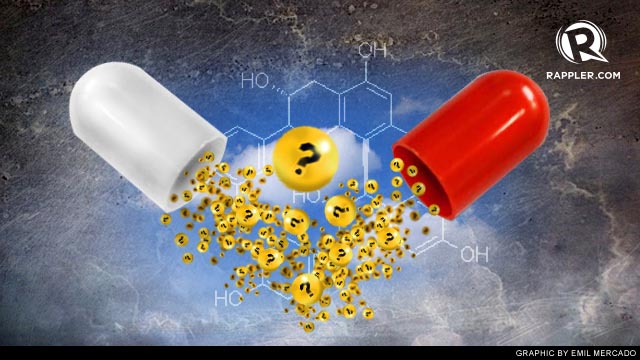SUMMARY
This is AI generated summarization, which may have errors. For context, always refer to the full article.
 Are you an anti-oxidant/vitamin junkie? If you were told that science has consistently shown for at least the last decade or so that antioxidants largely do NOT work except slightly for very specific conditions, would you still take them? Chances are you still would.
Are you an anti-oxidant/vitamin junkie? If you were told that science has consistently shown for at least the last decade or so that antioxidants largely do NOT work except slightly for very specific conditions, would you still take them? Chances are you still would.
The singer Bjork was supposed to have said that “singing is a celebration of oxygen.” While scientists would probably never use that as an opening statement in their journal abstracts, it is true for singing as it is for life in general. Life celebrates oxygen; but as in any celebration, somewhere at the back of the house, we generate trash which can, over time, overrun our normal lives.
This is why. In order to live, our cells convert the food we eat to energy that we need to function and we need oxygen to do this. This wonderful process has a drawback – it produces renegade molecules called “free radicals” that are quite unstable and could cause cell damage that scientists believe lead to many diseases, including the topnotchers: heart disease, cancer and diabetes.
Enter health saviours called antioxidants. Scientists found that many foods contain substances including some compounds known as vitamins, namely A, C, E, beta carotene, selenium, resveratrol, that could neutralize the effect of these free radicals. We ended up calling them by describing their effect, thus, “antioxidants.” Vitamins are compounds naturally found in our bodies or from food we eat, that act as enzymes or are converted to enzymes needed for our bodily functions. Antioxidants include some vitamins but not all vitamins are antioxidants.

So it made so much sense, to industry anyway, to massively produce supplements containing specific forms of these antioxidants. Last April 2012, in the US alone, the antioxidant supplement industry hit US$65 billion. This public frenzy over antioxidants happens despite scientists having always maintained that taking antioxidant supplements and getting them from food has a big difference: the former does NOT work.
Last January 10, Henry Scowcroft who works for Cancer Research UK frustratingly wrote a piece called “The antioxidant myth is too easy to swallow” in the Guardian online. He said cancer research has consistently revealed that antioxidants have not been shown to prevent and much more, cure cancer as ads for these supplements claim with pizzaz. He also referred to a review that appeared in the Cochrane Summaries (independent reviews of health research for decision making) last March 2012 that outlined all the research pointing to why there is no basis in science for the public’s multibillion dollar trust on antioxidant supplements.
There is even evidence that Vitamins A, E and beta carotene could even cause earlier death in certain segments of the population. Taking some vitamins when you are also doing chemotherapy is known to cause interactions that could mess up your treatment.
Why supplements don’t work
There are several possible reasons why antioxidants in supplemental form are not working. One is because antioxidants in food take many forms, some in the hundreds. Antioxidant supplements are usually limited to only one form. That form may not work or may not work in isolation from its other forms.
Another reason is that for an antioxidant to defeat the free radicals, we may need to take them in amounts that our bodies cannot take. For example, while resveratrol (antioxidant in red grapes) is found to even delay aging in mice in experiments, a human would have to drink 60 liters of red wine a day to match that experiment. If you can drink that amount at all, you may get rid of your free radicals but not before retiring your liver for good.
But if I had even just a million of the multi-billion dollar revenues from antioxidant supplements, I think I will bet every bit of it that those who are big fans of these supplements will not be swayed to reconsider even after being told they simply do not work. This is what scientists Kelly Garrett and Brian Weeks from Ohio State University showed us in another study entitled, “The Promise and Peril of Real-Time Corrections to Political Misperceptions” that came out January 24.
That study dealt with political beliefs, but it showed that even if you correct people with clear facts, they will still stick to what they originally believed in before they were corrected. Now it makes sense why the debates on issues like the RH bill did not seem to really move anyone from one side to the other. It was not the bill that divided us. We were divided to start with, and largely fixed where we stood.
So, if you were a believer in antioxidant supplements accompanied by a label that says “No Approved Therapeutic Claims” (which, by the way, is not a cute excuse but a serious health warning), you will still most likely take them no matter what the evidence says. If you were not a big fan, then the evidence will just make you distance yourself from these pills perhaps even more.
But maybe media plays a bigger role than we thought. Media could dazzle, as it is notoriously known for and form “beliefs.” Here in our home ground, could media help promote “belief” in evidence, in science, even if science could only offer tentative truths? It is known to happen. May it happen here and soon. – Rappler.com
Maria Isabel Garcia is a science writer. She has written two books, “Science Solitaire” and “Twenty One Grams of Spirit and Seven Ounces of Desire.” Her column appears every Friday and you can reach her at sciencesolitaire@gmail.com.
Add a comment
How does this make you feel?
There are no comments yet. Add your comment to start the conversation.